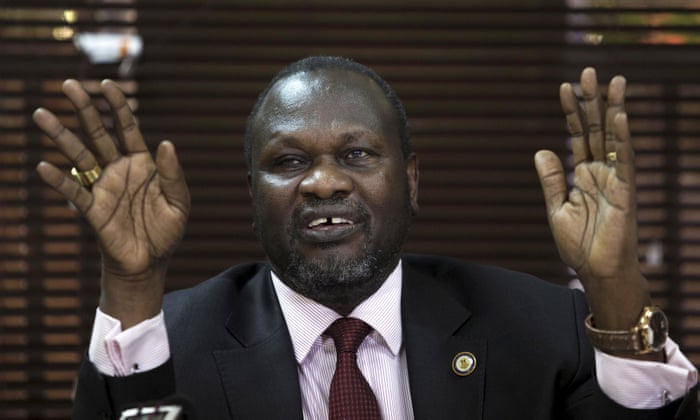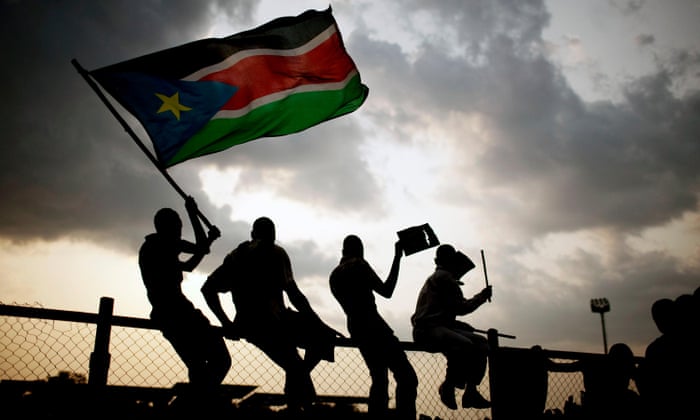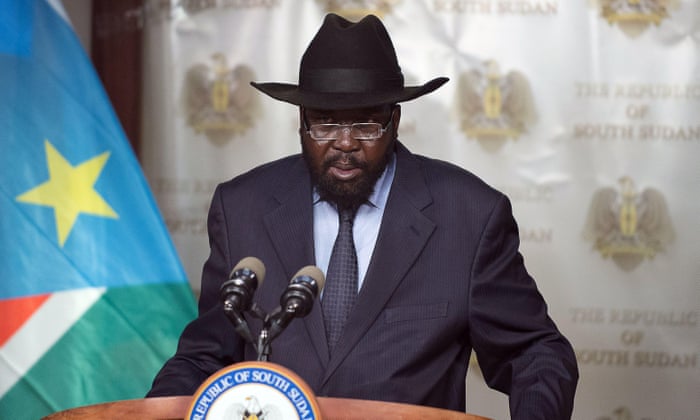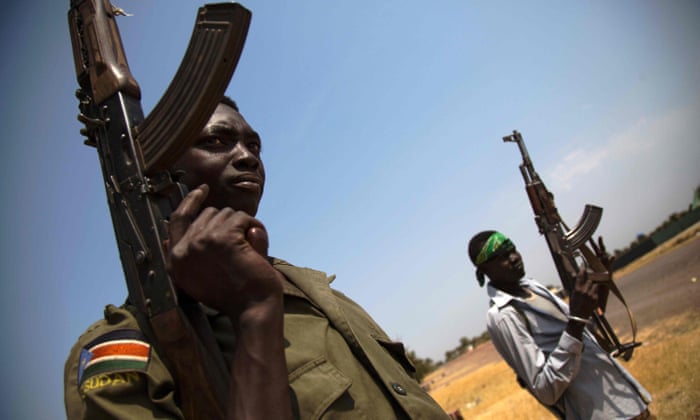Riek Machar, liberation champion turned insurgent, tells Daily Maverick his fight is just – despite reports of horrific suffering
Date: Tue, 9 Feb 2016 18:20:14 +0100

One of Africa’s bloodiest wars is being waged from a three-storey building in a calm, upscale neighbourhood in Ethiopia’s capital.
It is here, in a typical suburban villa in Addis Ababa, an easy walk away from luxury hotels and burger joints, that Riek Machar maintains his residence.
It’s a long way from the frontline.
Machar is a man of many titles. He’s a doctor, with a PhD in mechanical engineering from an American university. He’s a hero of South Sudan’s decades-long war for independence. He’s a father and a husband, a former vice-president, and a seasoned diplomat.
But his most important title today, as South Sudan enters its third year of a disastrous civil war, is commander-in-chief of the Sudan People’s Liberation Army in Opposition (SPLM-IO).
Along with Salva Kiir, the current president of South Sudan, Machar has presided over a vicious internecine conflict.
Tens of thousands of civilians have died since the war began between the Dinka and Nuer ethnicities in December 2013, as fighters from both sides raped and pillaged their way through towns and villages, while more than two million people have been forced out of their homes.
Today, life in South Sudan, Africa’s newest country, is more difficult than it ever has been – and Machar is one reason why.

We meet at the house where he spends most of his time. Security is tight and inside heavy curtains are closed against the midday heat, lending the room a gloomy, gothic air.
Machar sits in an armchair. “The day is good if it starts with journalists,” he jokes. He speaks slowly, in perfect English.
His fighting days are behind him: he’s in his early 60s and it’s obvious that the commander-in-chief designation is honorary. In his business suit, Machar is clearly not directing the troops himself.
But this doesn’t diminish his importance. As chief negotiator in the recent peace talks, it is Machar’s job to end the fighting rather than conduct it. This diplomatic battle culminated last year in the signing of a peace agreement between the rebels and the government which imposed an immediate ceasefire, and was supposed to lead to a government of national unity with Machar once again in the vice-president’s office.
It hasn’t quite worked out that way. The ceasefire has been repeatedly broken by both sides, and Kiir has been reluctant to cede power. Most recently, the president unilaterally created 28 new states in a clear attempt to derail the transition.

Machar, however, remains optimistic. “I am happy with the agreement signed, that this is going to usher in reforms. It will also usher in a new system of governance, federalism, in my country. And I am satisfied with that.”
But his reliance on the guarantors of the agreement – the Intergovernmental Authority for Development, along with international heavyweights including China, the UK and US – is misplaced. The international community is out of ideas when it comes to South Sudan, and has less influence in Juba than ever before.
Also misplaced is Machar’s insistence that only Kiir has failed to uphold his end of the bargain. Machar says his troops have stopped fighting, but rebel forces have been implicated in multiple ceasefire violations.
Violence
Machar also claims that he has managed to stamp out the culture of human rights violations – including mass rape, ethnic violence and the use of child soldiers – which characterised the early days of the war, as outlined in a scathing African Union report.
But recent news suggest the contrary. Not only has Kiir conspicuously failed to take action against commanders implicated in war crimes, but the human rights abuses have continued long after his supposed April 2014 cut-off.
“I spent all my life for liberation of South Sudan, I would have done something better for my own self. Resisting dictatorships is more worthwhile than accepting them and thinking things will change by themselves.”
Asked if the suffering for a majority of South Sudanese citizens could be stopped if Machar and his colleagues gave up the fight, the rebel leader says “giving up would be irresponsible” and that “history would not forgive him” for it.
So how would he liked to be remembered? “I created a country. I created a country,” he emphasises.
“I’m a hero of the independence. It can never be a mistake. We have found ourselves in this despicable situation, but that doesn’t mean that our independence is not cherished. We cherish our independence. We fought for it for many generations.”

For Machar, the triumph of independence was enough, even if it failed to bring the stability, prosperity and rule of law that it was supposed to. And this war’s no different: it’s an abstract political concept which makes sense in the comfort of his Addis Ababa living room, but overlooks the suffering of the people he is supposed to be fighting for.
He also clings on to the idea, shared by many leaders who have spent too long in positions of power, that the show can’t go on without him.
“The time for my retirement is coming. It’s inevitable,” he says. But that time is not now. “What remains for me is to ensure things are moving correctly and for others to take over so if there’s anything I want to live longer for, it’s to create stability in the country and to see that the system moves even without me.”
The news from South Sudan is not good. On Monday, the African Union said the crisis is getting worse. As if to underline that point, government troops were accused of suffocating 50 civilians to death by locking them in a shipping container in the baking heat.
This is what the war has brought to the people of South Sudan. As much as Machar might like to pretend otherwise, this is the ongoing cost of his fight for power.